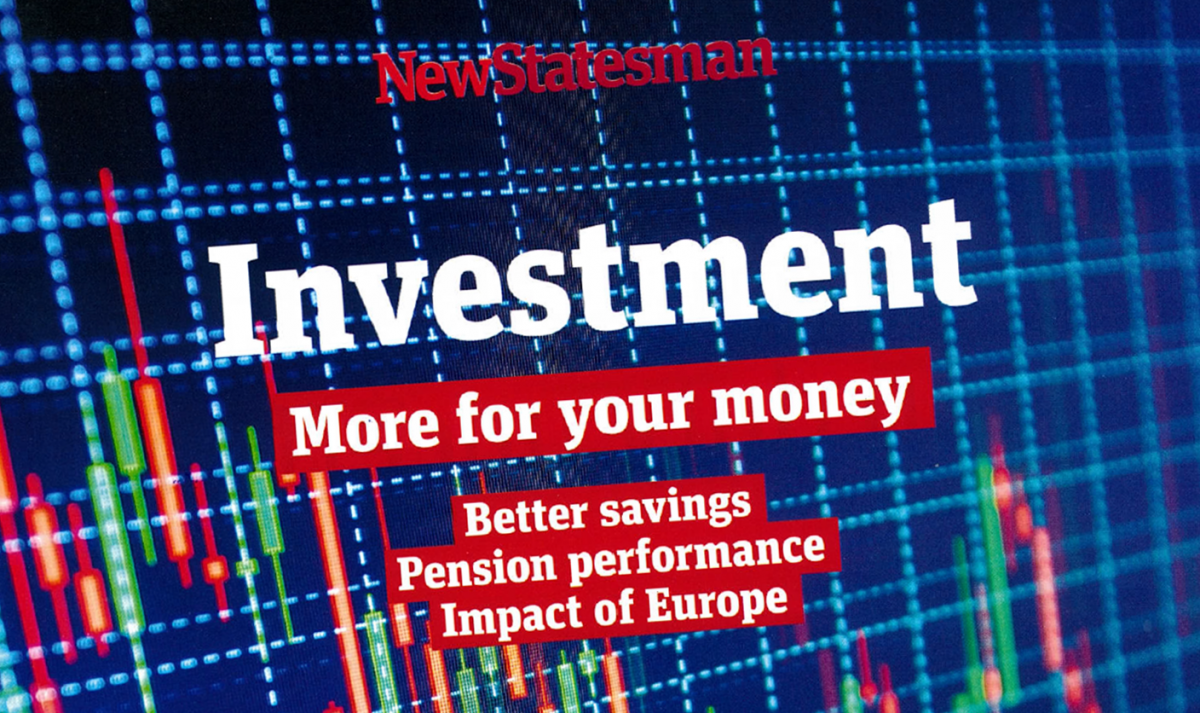
David Saunderson, Chief Executive of Cantab Asset Management, recently published the following article in the New Statesman ‘Investment’ magazine:
In recent months, markets have experienced considerable volatility. This has caused nervousness amongst some investors.
If investing in the market is to be attractive, it is an obvious statement that it should offer good returns. The returns could be good in two ways: in absolute terms or relative to alternatives. I believe investing in the market potentially offers good returns in both senses.
The Top UK 100 Companies has slipped over the last year. However, investors should not fall prey to the cognitive bias which leads individuals to take more notice of recent events than returns in the long run. The Black-Litterman analysis of investment returns from 1991 to 2012 demonstrates that the stock market gives a typical average return of 7.9%1 per annum for developed market equities, much higher than the return on cash of 1.5%. By investing in a variety of assets including developed and emerging market equities and government and corporate bonds a spread of risk is achieved with generally low volatility. At Cantab Asset Management, this approach has proved successful, giving an average return on our medium risk portfolio of 9.6% per year over the last 6 years2. Our successful strategy means that we would be placed in the top quartile of wealth managers in the FT Wealth Manager Comparison over 1, 3 and 5 years.
For many people, their biggest investment other than their house will be their pension. The recent pension freedoms mean that upon retirement, individuals can choose between taking an annuity and remaining invested in the market. Let us consider the returns offered by these options. A level single life annuity taken at age 65 purchased for £100,000 will pay £5,300 per year3. Assuming average life expectancy and using a redemption yield calculation, this is equal to an investment return of 0.7% for a man and 1.2% for a woman. This is lower than the returns offered by an investment portfolio (as seen in the previous paragraph). Not only that, but such an annuity will cease payment upon death, whilst an investment portfolio can be bequeathed to successors (in the case of a pension in a very tax efficient manner).
Sometimes, individuals are tempted to see ‘buy to let’ property as their ‘pension’, preferring bricks and mortar to shares. However, property does not benefit from diversification, which means it can be comparatively higher risk than shares. Secondly, residential property cannot benefit from the tax shelter offered by a pension, which (as well as being tax-exempt when paid in) allows assets to grow tax free. Even outside a pension, residential property is at a tax disadvantage: it suffers a capital gains tax rate which is 8% higher than shares (28% for higher rate tax payers versus the new 20% rate for shares) following the 2016 Budget.
It is clear that, whilst volatility might be concerning, in the long term the investment markets have provided a good return over many years. They are also likely to be the best option for turning your defined contribution pension into your retirement income. It is important, therefore, to take a long term view with your investments, as you may contribute to a pension for 30-40 years and draw from it for just as long. It is important in developing and managing your investments to take advice from a professional ‘independent’ firm of financial advisers, such as Cantab Asset Management.
Risk warnings
This document has been prepared based on our understanding of current UK law and HM Revenue and Customs practice, both of which may be the subject of change in the future. The opinions expressed herein are those of Cantab Asset Management Ltd and should not be construed as investment advice. Cantab Asset Management Ltd is authorised and regulated by the Financial Conduct Authority. As with all equity-based and bond-based investments, the value and the income therefrom can fall as well as rise and you may not get back all the money that you invested. The value of overseas securities will be influenced by the exchange rate used to convert these to sterling. Investments in stocks and shares should therefore be viewed as a medium to long-term investment. Past performance is not a guide to the future. It is important to note that in selecting ESG investments, a screening out process has taken place which eliminates many investments potentially providing good financial returns. By reducing the universe of possible investments, the investment performance of ESG portfolios might be less than that potentially produced by selecting from the larger unscreened universe.


